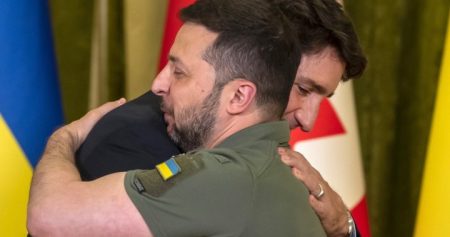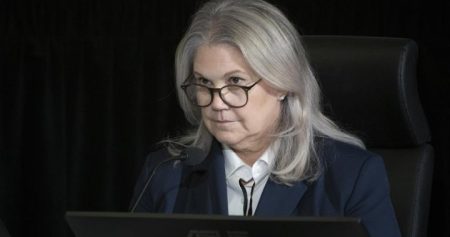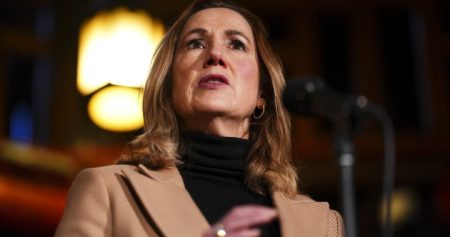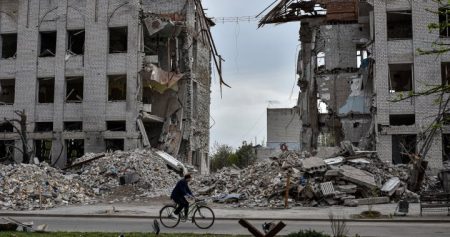The University of British Columbia (UBC) has found itself embroiled in controversy following its decision to rent out a classroom to the Hong Kong Economic and Trade Office for a recruitment exam. This seemingly innocuous act has ignited a firestorm of criticism from human rights activists who allege that the exam is directly linked to the implementation of Hong Kong’s contentious 2020 National Security Law (NSL). The central point of contention revolves around the NSL’s perceived suppression of fundamental rights and freedoms, and the concern that facilitating the exam on Canadian soil implicitly endorses the law’s application, thereby undermining Canada’s democratic values.
The crux of the activists’ argument lies in the nature of the exam itself. They contend that successful candidates are required to pledge allegiance to both the Hong Kong and Beijing governments, and that the exam tests applicants’ understanding of the NSL. This law, enacted in response to the 2019 pro-democracy protests in Hong Kong, criminalizes activities deemed as secession, subversion, terrorism, or collusion with foreign organizations. Critics argue that the NSL’s broad and vaguely defined terms have been used to stifle dissent and persecute individuals both within Hong Kong and among the global Chinese diaspora. By hosting the exam, UBC is accused of inadvertently aiding the implementation of a law that directly contradicts Canada’s commitment to human rights and democratic principles.
The Chinese Canadian Concern Group on the Chinese Communist Party’s Human Rights Violations, spearheaded by Gabriel Yiu, has formally expressed its disapproval to UBC President Dr. Benoit-Antoine Bacon. Their letter underscores the potential national security implications of allowing the Hong Kong government to conduct such an exam on Canadian soil, suggesting that it could facilitate the infiltration of foreign authoritarian influence. The group emphasizes the NSL’s draconian nature and its use to suppress fundamental freedoms, including freedom of speech and the press. They urge UBC to acknowledge the ethical implications of its decision and ensure that similar events do not occur in the future.
Vancouver East MP Jenny Kwan echoes these concerns, highlighting the Chinese government’s human rights record. While acknowledging UBC’s right to rent its facilities, she argues that the university should adhere to ethical standards, especially when dealing with governments known for persistent human rights violations. Kwan suggests that, at the very least, UBC should have informed exam participants about the concerns surrounding the NSL. She criticizes the university’s response as inadequate, arguing that simply adhering to basic rental requirements is insufficient, particularly for a global institution like UBC.
UBC’s response, however, emphasizes the administrative nature of its involvement. The university maintains that it does not endorse the views or positions of groups renting its spaces, and that its role is limited to managing space rentals and ensuring compliance with established policies. UBC asserts that the exam did not violate any laws, regulations, or university policies. This response has been met with dissatisfaction from critics who argue that it ignores the larger ethical and political context of the situation. They contend that UBC, as a prominent institution, has a responsibility to consider the implications of its actions, particularly when they potentially impinge on fundamental rights and freedoms.
The incident raises broader questions about the role of academic institutions in navigating the complexities of international relations and human rights concerns. While universities generally uphold principles of academic freedom and open dialogue, this case highlights the potential for conflicts to arise when these principles intersect with the actions of foreign governments accused of human rights abuses. The debate centers on whether facilitating activities related to such governments, even indirectly through space rentals, constitutes tacit endorsement of their policies. The controversy underscores the need for universities to develop clear guidelines and ethical frameworks to navigate these sensitive situations, ensuring that their actions align with their commitment to human rights and democratic values. The concern remains that the Chinese government’s recruitment efforts, potentially linked to enforcing the NSL abroad, could further erode democratic freedoms and principles in countries like Canada.










